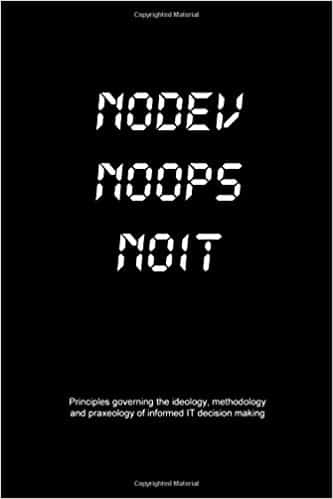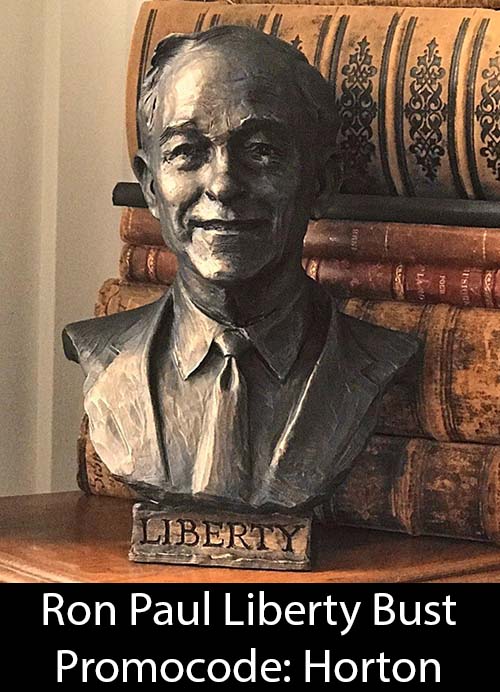By Scott Horton Antiwar.com April 06, 2005
Chalmers Johnson, author of Blowback: The Costs and Consequences of American Empire and Sorrows of Empire: Militarism, Secrecy, and the End of the Republic, and the guest on my March 26 radio show [stream] [download mp3], spent decades as what he now calls a ‘spear-carrier for empire.’ According to Mr. Johnson, we have ‘[t]o a certain extent ”¦ been at war since 1940.’ When the U.S. government told him that our military dominance of much of the planet was strictly for the purposes of ‘containing communism,’ he believed them and presumably taught his University of California students the same. He was even employed for six years as a consultant to the Central Intelligence Agency.
When the Soviet Union collapsed, Johnson, like many other political thinkers, expected NATO to be dissolved and our ‘containment’ to end. When this didn’t happen, he had to reevaluate his past positions. While most of the establishment just carried on with their spears, inventing new excuses for American empire along the way, a few who supported empire during the Cold War — Johnson, Pat Buchanan, Jude Wanniski, etc. — wanted out. They understood an inescapable fact of history: empires fall. Ancient Babylon, Greece, Macedonia, Rome, Spain, Britain, Germany, and Russia: the people of all these states had to pay the price for letting their ‘leaders’ take their societies past the point of no return.
It is easy to be a cheerleader for empire. ‘We’re winning the War on Terror!’ Many Americans apparently believe that the military will keep the rest of the world (which they see as inexplicably perturbed at us) at bay, and that we may continue pretending our choice of direction secures our long-term security. In the past, it may have been easy to imagine America and its Constitution lasting many more lifetimes, but it is becoming harder to suspend disbelief as the body count, price tag, and growing resentment wrought by our current adventures continue to mount. More Americans seem to be catching on. Empire weakens us.
By definition, empire means overextension, dependence on the conquered, debt, taxes, and highly centralized power. None of these things are conducive to a lasting, limited republic. The ‘father of the Constitution,’ James Madison, said as much.
Not despite but because of overwhelming military and political dominance over its satellites and the endless reach of its internal bureaucracy, the Soviet Union came crashing down. Its people were unable to support their top-heavy leviathan state any longer.
Short of outright occupation, there are still many ways of controlling foreign powers, and economic pressure of one kind [.pdf] or another usually paves the way for a new kind of colonialism that calls itself anything but what it is. For those in denial about America’s status as world empire, Chalmers Johnson reports in Sorrows of Empire that there are currently 725 American military bases in 153 countries. Most of these, while tangible expressions of forward-deployed military power, are permitted by the governments of these countries, often even by their citizens. These are ‘friendly’ occupations that breed dependence on the U.S. for the locals’ defense and economy, which in turn ratchets up pressure on cooperative states to relinquish their most valuable domestic resources through agreements private interests would have to pay much more to secure. Many of these occupations create ‘blowback,’ including resentment against us for policies most Americans don’t know about or understand. Blowback is what killed 3,000 on 9/11.
Empire’s solution? Wage more war and build more bases, and on it goes.
If we believe in the free markets we claim to be exporting, let’s show the world by example, and offer to buy their oil. How much oil could the average American have bought at the local Quick-E-Mart with money the government has wasted occupying the Middle East and Central Asia? A lot. It is much more costly to steal oil than to buy it. American elites apply their mistaken belief in the domestic power of government to international relations as well: if America needs oil, they must use military force to ‘secure’ it. They apparently think that if they don’t send in the Marine Corps, the people of the Middle East will just leave the oil in the ground and make no money. If they were to do so, it would only be as short-term revenge for recent meddling by the U.S. government. The more aggressive our government is, the more reluctant to trade with us freely others will be. If the U.S. treats the people of the Middle East with respect, of course they’ll sell the oil. Regardless, it happens to be under the ground in their countries; it’s up to them to sell or not.
Those waging war while preaching freedom and property rights ought to understand this. Perhaps they just don’t care.
The new domino theory (with America as the Reds) holds that once we erect ‘democracies’ in the Middle East, the remaining ‘non-democracies’ will fall in line. This is laughable. Our $2.57 trillion government foments coups, hires mercenaries to train the ‘national guard’ for amirs and sultans, encourages revolutions, installs airbases on holy land, and so forth, all of which ultimately brings our rivals together. The instability spread by having Americans in camouflage all over Asia will only make it harder in the end for us to get the oil we need. Even if ends justified means, the rhetorical gloss of freedom and democracy ought to be fading fast for even the most devout statists.
(For the record, none of our allies in the region — Saudi Arabia, Egypt, Lybia, Jordan, Oman, the United Arab Emirates, Qatar, Kuwait, Bahrain, Afghanistan, Uzbekistan, or Pakistan — are democracies. Okay, I’ll give you Djibouti. And Israel is a democracy only if you don’t count the folks living in the occupied West Bank or Gaza.)
According to Chalmers Johnson, what was, in more rational times, America’s biggest fear, a Paris-Berlin-Moscow axis, is now being realized. The aggressive position of the U.S. made it happen. We might as well add China to the list, too. The old Sino-Soviet split is healing quite nicely, as the Chinese-Russian ‘friendship treaty‘ of 2001 and their upcoming joint military exercises would seem to indicate. The Europeans are also warming to China. They will begin selling them weapons again next year. It’s good that everyone wants to be friends, but these new friendships are motivated by an increasingly common view of America as their greatest potential threat.
We’ve gone so far down the path to empire and ruin that it may be too late to turn back the tide with writing or voting. We may be left with two choices: the bankruptcy and dissolution faced by the British Empire and the Soviet Union, or the total devastation and unconditional surrender suffered by both Nazi Germany and Imperial Japan. If the anti-imperial forces of this country were to put everything they have into taking the House of Representatives in 2006, immediately halting the expenditure of Treasury money on this imperial mess, and bringing the troops home from their 725 or so foreign bases, we might be able to win some forgiveness for our recent violence. The former soldiers may end up as local cops or Homeland Security troops, but perhaps we’ll be spared the airstrikes.















